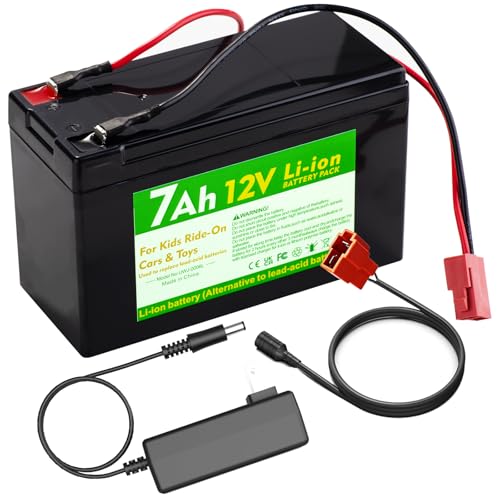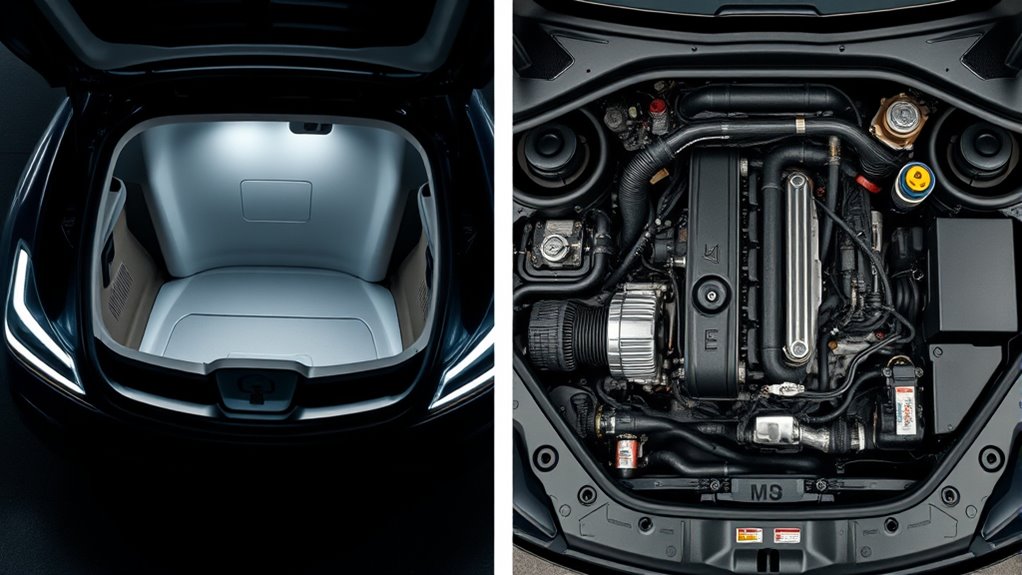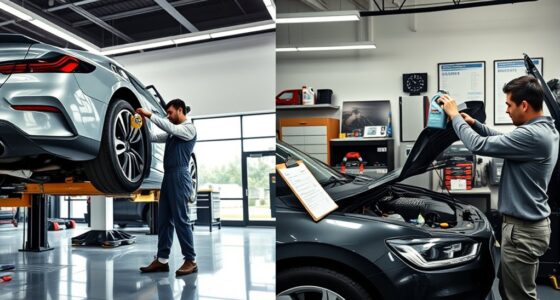Electric cars tend to be cheaper to maintain over time because they have fewer moving parts and don’t need oil changes or exhaust repairs. Battery replacements can be costly, but warranties and gradual advancements make them more affordable. Fuel costs are lower since public charging is often cheaper than gas, and fewer repairs mean less money spent. If you explore further, you’ll discover how these savings add up and what factors influence the overall costs.
Key Takeaways
- EVs have fewer moving parts, reducing the likelihood of costly repairs and lowering maintenance expenses.
- Electric cars require no oil changes, exhaust repairs, or transmission work, saving money over their lifespan.
- Ongoing maintenance costs for gas vehicles are higher due to regular oil changes, exhaust system repairs, and more frequent part replacements.
- EVs generally have lower overall maintenance costs in the long run, despite higher initial purchase prices.
- As charging infrastructure expands, fueling costs for EVs become more predictable and often cheaper than gas, further reducing total expenses.

When comparing electric and gas car maintenance costs, you’ll find that electric vehicles generally require less upkeep due to fewer moving parts and simpler systems. One of the biggest advantages is the reduced need for regular oil changes, transmission repairs, and exhaust system maintenance. Instead, your primary concern with an electric vehicle (EV) revolves around the battery’s longevity, which notably impacts long-term costs. Modern EV batteries are designed to last between 8 to 15 years, and many manufacturers offer warranties covering 8 years or more. As batteries age, their capacity can diminish, leading to reduced driving range, but replacements tend to be less expensive than they once were. This means that, over time, the cost of replacing a battery is becoming more predictable and manageable.
Electric vehicles require less maintenance, with batteries lasting 8 to 15 years and replacement costs steadily decreasing.
Another factor influencing maintenance costs is the fueling infrastructure. Electric cars require charging stations, which are becoming increasingly widespread, especially in urban areas, workplaces, and along major highways. While installing a home charger involves an initial investment, public charging stations can be used for convenience, often at a lower cost compared to fueling a gas vehicle. Plus, charging tends to be quicker at fast-charging stations, reducing downtime and inconvenience. As the network of charging stations expands, you’ll find it easier and cheaper to keep your electric vehicle powered up, decreasing ongoing fueling costs compared to regularly buying gasoline. Additionally, advancements in battery technology and projected lifespan are making EV ownership even more cost-effective over the long term.
In contrast, gas vehicles depend heavily on the fueling infrastructure, which is well-established but can be expensive and less convenient in some regions. Gas prices fluctuate, and frequent trips to the pump add up over time, especially if you commute long distances. Maintenance for gas cars includes oil changes, spark plug replacements, and exhaust system repairs—costs that are recurring and can add up quickly. Conversely, electric vehicles have fewer moving parts, meaning fewer components to fail or require maintenance. Their simpler systems reduce the likelihood of unexpected repairs, translating to lower overall costs in the long run.
While initial costs for EVs can be higher than gas cars, the savings on maintenance and fueling often make up for it over time. The battery’s longevity and the expanding fueling infrastructure are key factors that influence these costs. As technology improves and more charging stations pop up, electric vehicles are becoming increasingly economical, especially when considering the reduced need for routine maintenance. Ultimately, if you’re looking for a vehicle with lower ongoing expenses, electric cars are proving to be a more cost-effective choice, thanks in part to durable batteries and growing convenience in charging options.

ChargePoint HomeFlex Level 2 EV Charger J1772 – Fast Smart Battery Power Charging at Home for Electric Automobile Vehicles – Hardwired for Electric Car
Charge with Confidence: ChargePoint builds reliable, flexible EV charging stations for home, business, and fleets. Get 24/7 support…
As an affiliate, we earn on qualifying purchases.
As an affiliate, we earn on qualifying purchases.
Frequently Asked Questions
How Often Do Electric Car Batteries Need Replacement?
You probably wonder how often electric car batteries need replacement. Typically, battery longevity spans around 8 to 15 years, depending on usage and maintenance. Most electric vehicles don’t require battery replacement during their lifespan, which helps keep replacement expenses low. When replacements are necessary, they tend to be costly, but advances in technology are gradually reducing these expenses. Proper care can extend your battery’s life, saving you money over time.
Do Electric Cars Require Oil Changes?
You won’t need to worry about oil changes or engine tune ups with electric cars. Since they don’t have internal combustion engines, there’s no oil to replace and no engine tune ups necessary. This means fewer visits to the mechanic, less maintenance hassle, and lower costs overall. Instead, you’ll focus on battery health and software updates, making electric cars simpler and more economical to maintain than gas-powered vehicles.
Are Tire Replacement Costs Higher for Electric Vehicles?
You might wonder if tire replacement costs are higher for electric vehicles. Since electric cars often have heavier batteries, they can experience more tire wear, especially on the front tires. This can lead to increased replacement costs over time. However, some EV owners find that their tires last longer because of smooth acceleration and braking. So, while tire wear can be higher, overall replacement costs may vary based on driving habits.
What Are the Costs of Repairing Electric Vehicle Charging Systems?
When it comes to repairing electric vehicle charging systems, you’ll find that charging station upkeep can be costly if multiple units need maintenance or upgrades. Electrical system repairs are generally less frequent but can be expensive if issues arise, such as faulty wiring or damaged components. You should budget for regular inspections and prompt repairs to make sure your charging infrastructure stays reliable and safe, potentially saving money in the long run.
How Does Maintenance Frequency Differ Between Electric and Gas Cars?
Imagine your car as a diligent gardener, tending to its needs. Electric cars require fewer visits, as their battery longevity means longer service intervals, reducing maintenance frequency. Gas cars, like a gardener constantly pruning, need regular oil changes and part replacements. You’ll find that electric vehicles need less frequent attention, allowing you to enjoy smoother rides with less fuss and fewer maintenance stops.

UNIKARO 12V 7Ah Li-ion Battery Pack with Charger Replacement for Kids Ride-on Cars
*This product is a lithium battery and can only be charged with a lithium battery charger. It is…
As an affiliate, we earn on qualifying purchases.
As an affiliate, we earn on qualifying purchases.
Conclusion
When it comes to maintenance costs, electric cars are like the unstoppable force of affordability—saving you money and stress like nothing else. Gas cars might seem cheaper upfront, but their endless repairs can drain your wallet faster than you can blink. If you want to avoid the nightmare of costly repairs and keep more cash in your pocket, switching to an electric vehicle isn’t just smart, it’s a game-changer you can’t afford to ignore.

EV Maintenance Log Book
As an affiliate, we earn on qualifying purchases.
As an affiliate, we earn on qualifying purchases.

Small Engines and Outdoor Power Equipment, Updated 2nd Edition: A Care & Repair Guide for: Lawn Mowers, Snowblowers & Small Gas-Powered Imple
As an affiliate, we earn on qualifying purchases.
As an affiliate, we earn on qualifying purchases.









